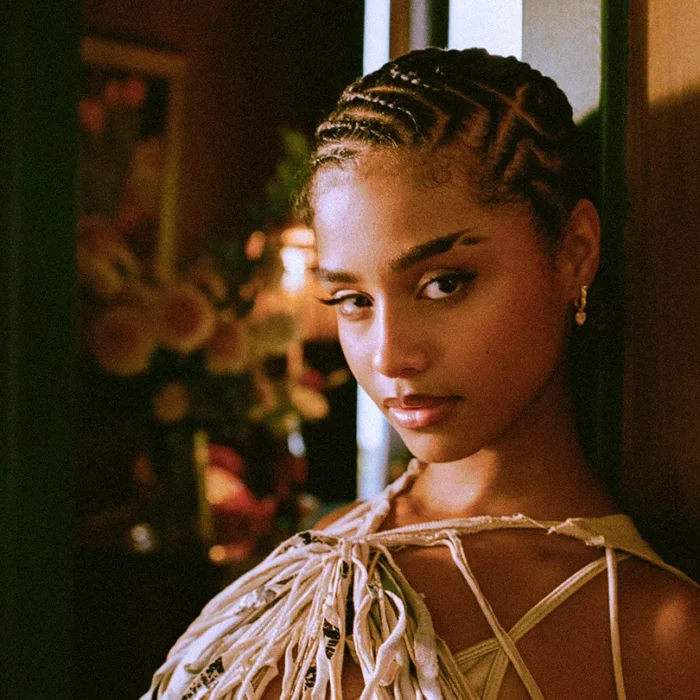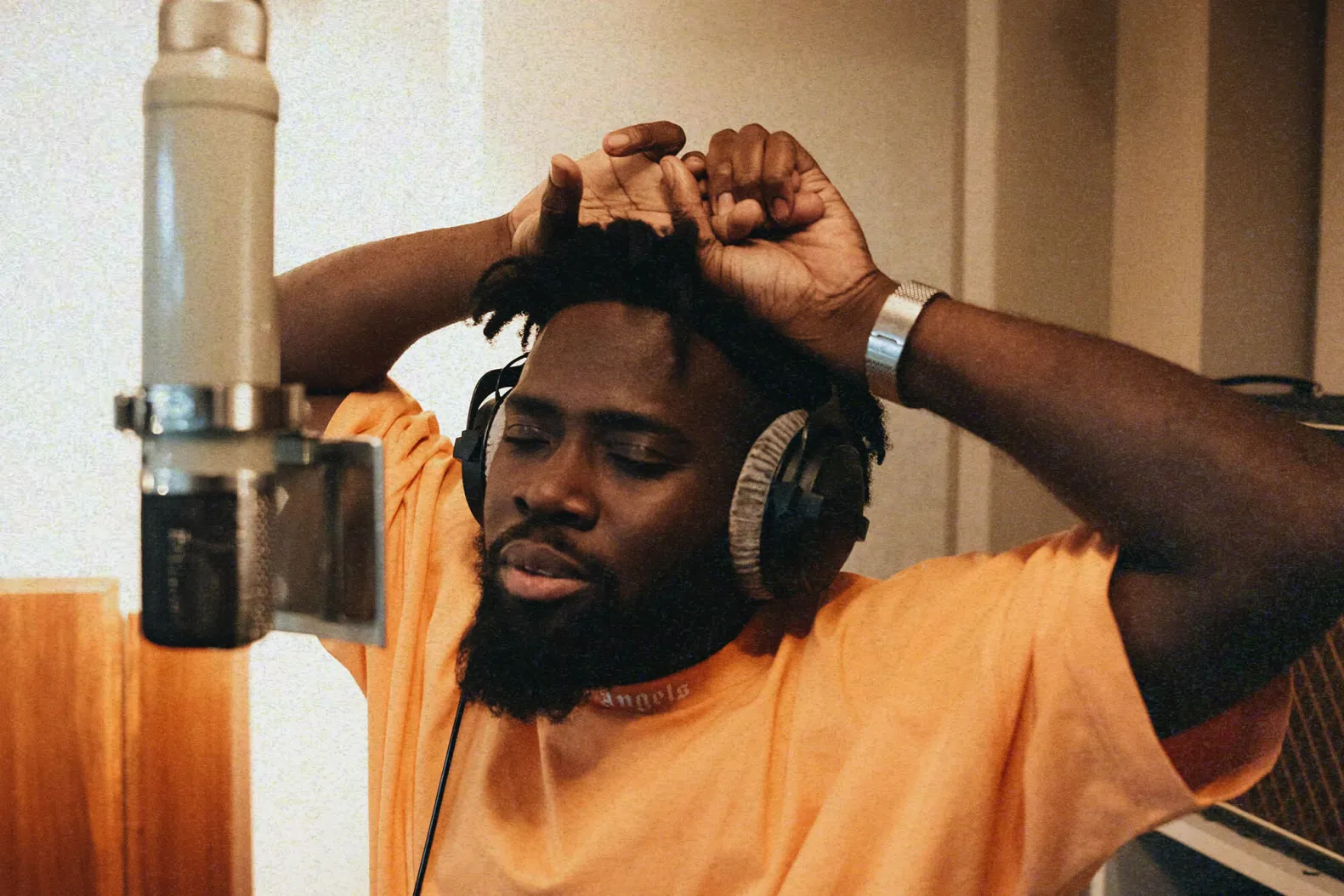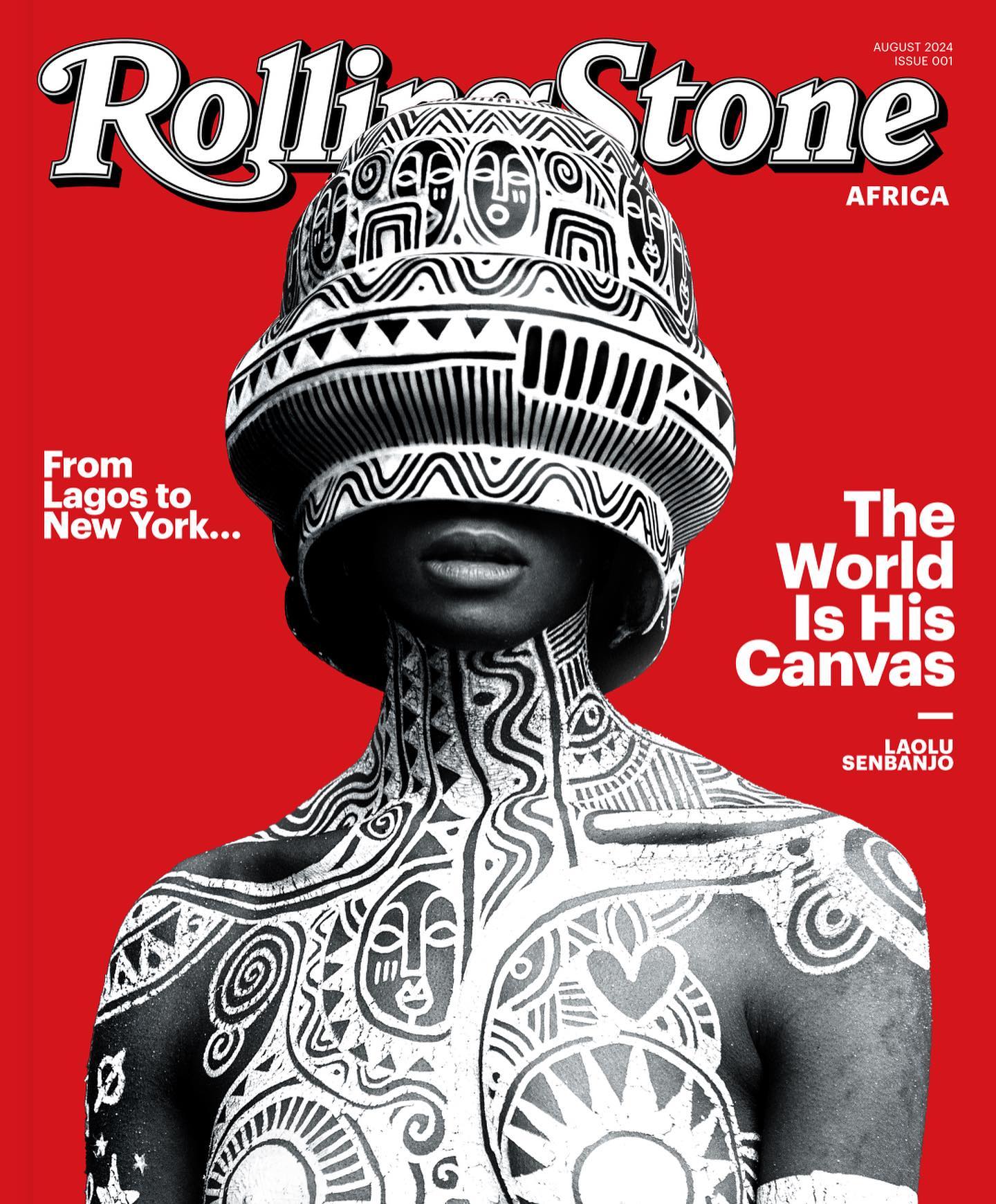

The Future of Music Interview is a Q&A in which our favorite artists and producers share their vision of what’s next, weighing in on everything from AI to emerging scenes to the artists inspiring them the most.
Julian Nicco Annan initially wanted to be an architect. The British Ghanaian producer, DJ, and singer, who goes by Juls, had held onto his dream of designing buildings until his dad dissuaded him from pursuing it. “His reason was that technology is improving,” Juls says. “It’s gonna get to a point where architecture will not even be needed anymore. Anybody can study how to use AutoCAD, which is one of the main software [programs] that they use. And then, very soon, you don’t even need to be qualified to be an architect.”
Good thing Juls listened to his dad. These days, he spends his time working across different arms of the Afrobeats industry from production to storytelling. As one of the pioneers of the genre’s most recent iteration, he’s had a front-row seat to a slew of changes in the industry and possesses a keen sense of where it needs to go. The 38-year-old rose to fame in the early 2010s, producing for acts like Show Dem Camp and Mr Eazi — including 2017’s “Skin Tight,” which shot Eazi into the stratosphere and introduced the sleek, bouncy productions Afrobeats music was known for in the late-2010s.
In between ordering takeout, Juls discusses everything from what it means for Afrobeats to go global to the importance of keeping in touch with ancestral roots and why the future of Afrobeats looks like a return to its ambitious past.
An iteration of Afrobeats arrived in the early 2000s. How would you describe the production then?
It was all about the rhythms. It’s been very experimental. I think over the years, we are getting a lot more experimental in using our traditional sounds because that’s what’s going to define African music for the next century or so. For centuries, our music has been built of African percussion, from the congas to the bongos — traditional instruments like the seperewa [a harp-lute] from Ghana, or some of the instruments that Yoruba artists from Nigeria use when they are making fuji. So it’s very difficult to say that there was a particular sound, but it was definitely rhythm that played an instrumental role in dictating and depicting what Afrobeats was at the time.
Can you talk to me a little bit about some of the rhythms or sounds that influenced your work as a producer?
When I started making Afropop, I was just trying to make music that would appeal to a larger audience. At the time, the music that the Wizkids, Wande Coals, and the Burnas were making was predominantly celebrated by their own [people]. And because I grew up in London, I was surrounded by a heavy Caribbean culture. I’ve grown up listening to a lot of reggae and dance. So when I started making beats, it was kind of like merging the two.
When I was making “Skin Tight” and “Banku” with Mr Eazi, my approach was more of a dancehall that was a lot more sexy, minimalistic in terms of the tones and the drums. But I still made sure that what I believe in was pretty much African. Now, I use quite a lot of guitars and saxophones, and I play a lot of the live percussion to give it a little bit more layer. Things have changed, and people actually want to hear the African sounds a lot heavier than usual.
Which African artists or music inspired your work as a producer?
When I moved to Ghana at 13, the first Ghanaian artist I was introduced to was Kojo Antwi. The type of music that he was making tapped into influences like reggae. Ghanaians back in the day, we tapped into influences of reggae music in terms of keyboards and stuff, and Kojo Antwi is one of my favorite artists of all time. In terms of production, I was influenced heavily by a producer named Armah, who is from Ghana, and from Nigeria I was influenced by Don Jazzy. There were other producers in Ghana, like Panji Anoff, who told me that I should make sure I have an identity and encouraged me to explore sounds beyond hip-hop, which I was doing a lot when I started.
What was growing up like for you, straddling multiple cultural identities?
Growing up in London, my parents didn’t really speak our local language, so when we came to Ghana, I had to pick that up from secondary school and university. Moving to Ghana was not necessarily a cultural shock, but things were a lot more different, and now moving back to London, you kind of see all the differences in the world that we’re in. But I’ve managed to adapt and learn from both worlds. Ghana as a place is the reason why I do music because that’s where I discovered myself from a musical and spiritual perspective. London is kind of like a place that has grounded me in terms of self-discipline in regards to having the right tools to be effective and efficient. Music has been my passion, and I got that from my parents.
When you say you got music from your parents, what do you mean by that?
Music was always being played in the house. My dad was a heavy jazz person, and my mum was heavy on the old-school highlife and reggae music. The funny story is my brother and sister were the only ones who learned how to play musical instruments. I never learned how to. I was very on the maths and architectural side. When I got into production and music, I had to teach myself how to play instruments.
You mentioned your dad talking you out of studying architecture because it is a field that can potentially be replaced by AI. I wanted to tie that back to music and get your thoughts on the recent advancement of AI in music and how it can come to influence the future of music, particularly Afrobeats.
To be honest with you bro, Afrobeats isn’t even, like, a genre. That’s what I keep saying to people; it’s just a name that has been coined and it’s just tapping into different African genres. Burna Boy can make an Afrobeats record, but when you listen to the sound, there are probably some sounds you are going to hear that are reminiscent of a guitar mix from Gambia or a traditional drum percussion from Nigeria. Because there are so many African genres, the traditional sound from Africa is incredible. It is going to be hard to emulate that.
We’re in a place where we’re trying to tell our stories accurately through visuals, through content, and then also reiterating the meaning behind some of these sounds. We need to understand that a Nigerian man playing drums in a certain rhythm is not him just playing drums. There is a traditional connection to those things, and it’s kind of disrespectful to be emulating those things.
But the thing is, how many people care about those things? Do we as Africans even care about preserving our tradition or our culture, because it’s two things. People just want to benefit from things, and at the same time, some people just want to preserve it; or some people just want to do the research and sound cool — “Oh, I know only this.” But what are you actually doing?
This is interesting, because when we talk about the globalization of African music, we sometimes talk about possible exploitation by Western powers. What are your thoughts on that?
I mean, it’s all narrative, bro. It’s all telling stories. You need to have people around you who are going to be able to tell your story quite significantly and make sure that’s not erased, right? You need to understand that Africa is overexploited. So many government leaders have signed treaties and deals with their colonial masters. It just depends on the narrative and how people are telling their stories. And everyone wants to be cool. It’s just a numbers game, so we can tap into their market.
I am more for Africans collaborating with the Caribbean and Latin America because the numbers over there are stupid. And it makes more sense to for us to be collaborating with these people who trace back to Africa anyways. There are massive African communities in these places, so why not? Also when you are listening to the sounds from the places, they are reminiscent of ours.
Who is an artist that you expect to have a huge impact on the future of African music?
I really couldn’t tell you because everybody is doing incredible things, but Rema has taken the world by storm. He has conquered America, he has conquered Europe, he has conquered India. He has been releasing good music consistently.
What current trend in African music have you been noticing?
Everybody is doing the amapiano thing, hehehe.

© Copyright Rolling Stone Africa 2024. Rolling Stone Africa is published by Mwankom Group Ltd under license from Rolling Stone, LLC, a subsidiary of Penske Media Corporation.
By providing your information, you agree to our Terms of Use and our Privacy Policy. We use vendors that may also process your information to help provide our services.
By registering for our sites and services, you agree to our Terms of Service (including, as applicable, the mandatory arbitration and class action waiver provisions) and our Privacy Policy.
We use vendors that may also process your information to help provide our services.
This site is protected by reCAPTCHA and the Google Privacy Policy and Terms of Service apply.
By providing your information, you agree to our Terms of Use and our Privacy Policy. We use vendors that may also process your information to help provide our services.